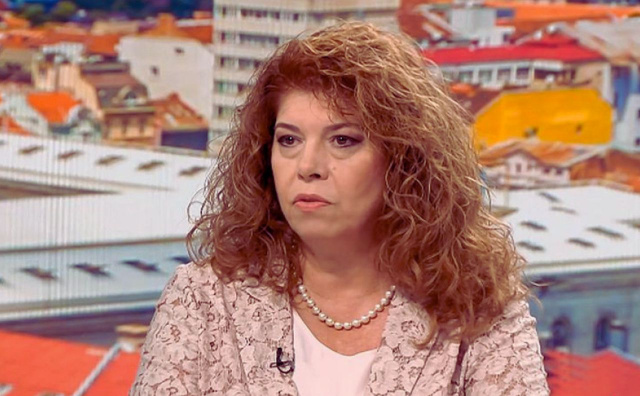Vice President Iliana Yotova has acknowledged that she is weighing the possibility of entering the presidential race, though no final decision has been made. Speaking on Nova TV, Yotova commented that such a move would require serious consideration, adding, “I have to think; decisions are coming.”
She reacted to a recent statement by BSP Deputy Chairman Kaloyan Pargov, who indicated the party would back Yotova if she chose to run. Yotova called the offer “extremely binding” and noted that she has been approached frequently with such suggestions, particularly in recent months. She emphasized that discussions surrounding the presidency should not be used as a means by political forces to cling to power or control the institution.
“When people make such proposals, it means you’ve done your job,” she said, adding that it also prompts a person to question whether they are up to the task. While she declined to confirm whether President Rumen Radev supports her potential candidacy, Yotova stated that they currently share a broader mission: defending statehood, as they pledged back in 2016.
Asked if Bulgaria is ready for a woman president, Yotova responded affirmatively, highlighting the resilience and capability of Bulgarian women.
President Radev is nearing the end of his second and final term, which concludes in January 2027. The next presidential election is scheduled for the fall of 2026.
Commenting on the Bulgarian Socialist Party’s participation in the current government, Yotova said the president gave enough time for the formation of a stable administration that could pull Bulgaria out of crisis. Although she believes BSP ministers are fulfilling their responsibilities, she criticized the government as a whole for lacking coherence and failing to meet public expectations. “It’s a vague, sometimes unprincipled, and colorless arrangement,” she said, attributing the flaws to the nature of the coalition itself.
When asked about the influence of Delyan Peevski within the BSP, Yotova said she could not speak on the matter, as she was not privy to the party’s internal decision-making. She distanced herself from speculations, saying she preferred to rely on facts rather than rumors.
Regarding the nomination of Rosen Karadimov for chair of the Commission for Protection of Competition and the backlash it received, Yotova described Karadimov as someone with a substantial track record in BSP circles, having worked under the Stanishev government. However, she refrained from commenting further, saying her experience in the presidency has taught her to focus on results rather than political rhetoric.
Yotova also reacted to recent suggestions of a potential joint presidential candidacy by GERB and right-wing parties. She was particularly taken aback by a comment from Ivan Kostov supporting such an idea, calling it “a betrayal” of the protest movements that had emerged against the current government and its key figures. “For me, it sounded like a joke,” she added.
Addressing the recent arrest of Varna Mayor Blagomir Kotsev, Yotova expressed doubts about the independence of the investigation. She framed the arrest as politically motivated and aligned herself with the opposition protests that followed. “There are different standards for different people,” she said, describing the event as part of a broader misuse of institutions for political purposes.
Yotova confirmed that the presidential institution is currently reviewing a request for the pardon of Desislava Ivancheva. The final decision is pending additional input from relevant institutions. She made it clear that the process is purely humanitarian and not a judicial determination. “Neither I, nor the pardon committee, are judges,” she stated. She also admitted to being inclined toward a compassionate view but did not indicate what the outcome would be.
When asked whether Bulgaria’s left needs a new political project or if President Radev should form his own party, Yotova declined to speculate. She said such developments should reflect the will of the people rather than emerge from behind-the-scenes maneuvering.
Yotova voiced concern about Bulgaria’s preparedness to adopt the euro on January 1, 2026. According to her, the government is failing to take adequate steps compared to other countries.
She also touched on the contract with Turkish company Botas, describing it as a crucial strategic deal. While President Radev helped negotiate access to Turkish terminals, Yotova emphasized that only the signatories of the contract can explain its terms. She criticized the underutilization of the agreement’s capacity, noting that it remains a significant issue. She welcomed the possibility of an investigation if necessary, underscoring the need for transparency.
Sources:
